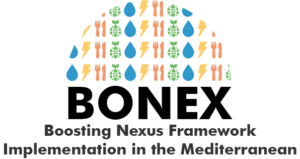Momenteel vertrouwen boeren op weersvoorspellingen en adviezen die ofwel algemeen zijn voor een bepaald, vaak groot, interessegebied, of sterk aangepast zijn aan de behoeften van de boeren (bijv. door grootschalige atmosferische variabelen te combineren tot synthetische parameters van belang). In beide gevallen zijn dergelijke voorspellingen en adviezen vaak helemaal niet gebaseerd op waarnemingen die zijn verzameld op of rond de beoogde landbouwgebieden, of zijn ze beperkt tot traditionele waarnemingen die uitsluitend worden verstrekt door weerstations, zonder gebruik te maken van de volledige reeks metingen en waarnemingen die beschikbaar zijn via Europese ruimtevaartmiddelen (bijv. Galileo GNSS, Copernicus Sentinels) en op radar gebaseerde gegevens vanaf de grond.
De doelstellingen van MAGDA gaan verder dan de huidige stand van de techniek door te streven naar de ontwikkeling van een modulair systeem dat door eigenaren van grote boerderijen rechtstreeks op hun locatie kan worden ingezet. Dit systeem voedt continu waarnemingen aan speciale en op maat gemaakte weersvoorspellings- en hydrologische modellen, waarvan de resultaten worden weergegeven via een dashboard en/of binnen een boerderijbeheersysteem.
FutureWater leidt de irrigatieadviesdienst van MAGDA, waarbij gebruik wordt gemaakt van hydrologische modellering met behulp van SPHY (Spatial Processes in Hydrology). De verwachte output bestaat uit een operationele irrigatiedienst die advies biedt over wanneer en hoeveel te irrigeren op bepaalde momenten tijdens het groeiseizoen, met gebruik van verbeterde weersvoorspellingen als invoergegevens.
Tijdens deze taak zal het SPHY-waterbalansmodel worden opgezet voor drie geselecteerde demonstratieboerderijen in Roemenië, Frankrijk en Italië. Tot slot zal het irrigatieadvies worden gevalideerd aan de hand van prestatie-indicatoren (bijv. waterproductiviteit, gewasopbrengstanalyse, efficiëntie van watergebruik) met behulp van veldgegevens (bijv. weerstations, vochtigheidssensoren, metingen van gewasbiomassa).
 De mediterrane regio staat voor groeiende uitdagingen om de voedsel- en watervoorziening te waarborgen, aangezien landen te maken krijgen met een toenemende vraag en een afnemende beschikbaarheid van natuurlijke hulpbronnen. De nexus-benadering is gericht op het beheren en benutten van synergieën tussen sectoren door middel van efficiënt en geïntegreerd beheer van de Water-, Energie-, Voedsel- en Ecosystemen-nexus (WEFE).
De mediterrane regio staat voor groeiende uitdagingen om de voedsel- en watervoorziening te waarborgen, aangezien landen te maken krijgen met een toenemende vraag en een afnemende beschikbaarheid van natuurlijke hulpbronnen. De nexus-benadering is gericht op het beheren en benutten van synergieën tussen sectoren door middel van efficiënt en geïntegreerd beheer van de Water-, Energie-, Voedsel- en Ecosystemen-nexus (WEFE).